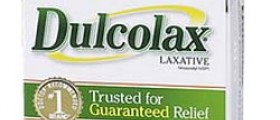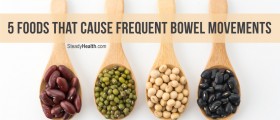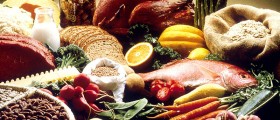
Constipation in Pregnancy
Many women experience constipation during pregnancy. This common problem affects at least half of pregnant women.In the first pregnancy quarter, the main causes of this problem are the hormones that slow down passing of food through the digestive tract. Medical term for this condition is called the reduction of gastrointestinal motility. Slower passage of food and fluids leads to absorbing more liquid from the intestines. The combination of reduced mobility in the intestines and firmer waste (because the more liquid is absorbed), causes constipation.
In late pregnancy, pressure on the colon by increased uterus, aggravates the passage of stool.
In the case of constipation, strain during the discharge can lead to deterioration of hemorrhoids, swollen veins in the rectal area. Although hemorrhoids can be very unpleasant, they are rarely life threatening and in most cases disappear by themselves shortly after birth. If severe form of constipation and abdominal pain occurs, a woman should immediately seek medical help.
Taking iron supplements may aggravate the constipation.
Fight Constipation Naturally
This unpleasant phenomenon, caused by the influence of hormones, can be prevented and alleviated by taking food rich in water that quickly passes through the intestines.The fiber intake should be increased. The fibers pass through the digestive tract undigested acting like a sponge - absorbing liquid. Increased amounts of fluid helps in faster and easier stool moving.
To prevent constipation, pregnant woman should increase intake of unpeeled fresh fruits (especially plums, pears, figs, and apricots), dried fruits, vegetables (especially crunchy vegetables such as carrots, zucchini, cucumber and celery), whole grain cereals (muesli, whole grain bread with bran) and legumes (beans, soybeans, peas).
Breakfast of every pregnant woman who suffer from constipation should contain a tablespoon of unprocessed wheat bran mixed with the cereals and a glass of water.
White rice and pasta should be replaced with their integral variants.
Two tablespoons of ground flax seeds mixed with a yogurt can also be very helpful natural remedy against constipation.
Besides that, more fibers require more fluid. Too much fiber and too little fluid can actually aggravate constipation by making stool even harder. Daily water intake should consist of at least six to eight glasses.
Mineral waters rich in magnesium provides further help.
If a woman is more prone to juices, she should drink plum, pear or apricot juices, which contain more fibers than plain juice. Adding sugar in juices should be avoided.
Regular exercise is good not only for treating constipation but it is beneficial for general health. By moving the body, intestines also move. Walking, swimming, riding a bicycle or bike room and yoga, can alleviate constipation, providing a woman to feel better and healthier.
It is strictly recommendable not to disregard and ignore need for going to the toilet. If you ignore that need, the muscles that move the intestines are becoming lazy, the signal that warns you that you need to go to defecate weaken and constipation worsens.
If none of these tips are helpful, you can ask your doctor or pharmacist to recommend taking supplements that contain fiber, which can be taken without prescription. One type of fiber, Psyllium, is a natural stool softener like bran, which is available in health food stores.

















Your thoughts on this
Loading...